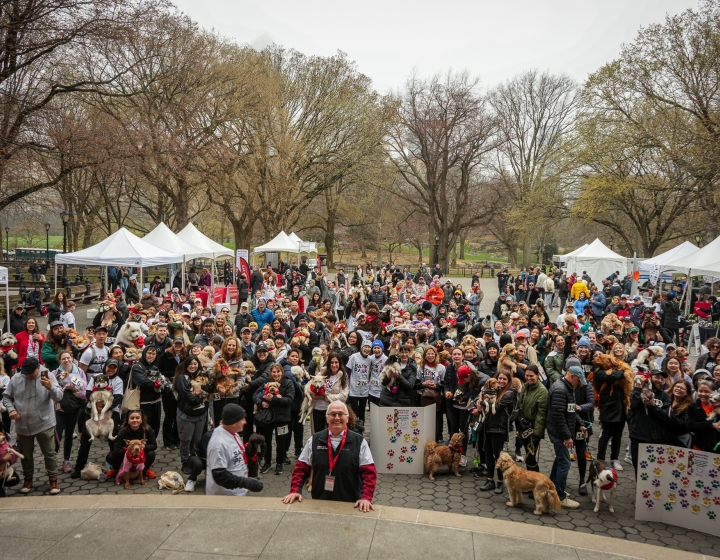Cornell staff act to ‘stay nimble, resilient’
The College of Veterinary Medicine, which includes the Cornell University Hospital for Animals (CUHA), Animal Health Diagnostic Center (AHDC) and New York State Veterinary Diagnostic Laboratory, continues to provide essential services to protect the health of animals.
CUHA has shifted from a teaching unit to providing vital emergency and urgent specialty care for local horses, pets, wildlife and farm animals, including on-the-farm care by the ambulatory and production medicine service.
“Students played a vital role in patient care and the hospital workflow has undergone a complete overhaul in less than one week with staff and faculty clinicians now covering all functions 24/7,” said Dr. Meg Thompson, director of CUHA. “Our team has done an outstanding job responding to the need for changes in a very short time.”
The Animal Health Diagnostic Center, where about 200 staff and faculty perform essential work to maintain health for the state’s agricultural animals, also remains open.
“Today alone we had 508 boxes of specimens, blood samples, swabs and tissue to be tested,” said Dr. François Elvinger, who directs the AHDC. “Staff are going above and beyond to keep our services running.”
In 2019, the diagnostic center – which performs a wide array of veterinary diagnostic services – processed 229,000 cases, with more than 101,000 from New York. Students helped with the work, but now without that help, full-time staff will take up the slack. Lab managers face challenges for scheduling technical staff, as many have child care issues.
“The university has helped tremendously by adding 10 days of leave time,” Elvinger said.
Students across campus have departed
As the Cornell campus responds to the global pandemic, North Star dining hall manager Marcus Goines brought a hint of cheer on March 17: He dressed to celebrate St. Patrick’s Day.
“It’s a sad time, but we need joy,” Goines said. “I do it for the students. I do it for the staff. It’s about putting a smile on somebody’s face, especially since we’re all going through a hard time right now.”
North Star normally serves about 2,200 meals daily. Now, the dining hall is quiet and serves take-out meals only.
“Staff have feelings and concerns, and we want to make sure that we are addressing those concerns, on a minute-by-minute and hour-by-hour basis,” he said. “I’m answering every question, as I’m getting a lot of information from senior management and we’re cascading those messages out to everyone.
“I’m making sure we don’t leave anything out,” he said. “We want everyone to be comfortable in this trying time.”
In a time of many questions, the Division of Human Resources has developed a comprehensive website to provide guidance on resources and training, pay practices and to answer staff questions. The university’s coronavirus webpage provides daily updates to its list of Frequently Asked Questions.
“We have a lot that goes on at Cornell,” said Mary Opperman, vice president and chief human resources officer. “While prioritizing our students, we have to figure out how to do what is right for the staff and the faculty and their families. That means there are a lot of moving parts. We’re trying to make the right decisions, and the situation is fluid.”
Faculty and staff across campus are transitioning to remote work, and HR is developing ways to support them as well as staff who provide critical services on campus. Among the changes, Opperman said, Cornell is relaxing some policies and has added 10 health and personal days that can be used for child care, family health care and other personal situations.
With the local school districts and child care centers closing, these days will help “our staff who are new or for other reasons have limited time-off banks,” Opperman said.
Bustling last week with students and activity, the campus now is hush. Staff are still dealing with the students’ sudden departure on North and West Campuses.
“It’s been super intense,” said Karen Brown, communications director for Campus Life. Parking lots around the residence halls were filled with students packing family vans, while students dropped off lamps, fans and shelving at each building’s “dump and run” location.
“It’s been crazy. Everything has been a rush,” said Missy Heuser, lead custodian in Building Care working in Clara Dickson Hall, who – with scores of other custodians on campus – remove trash and sanitize floors, walls and ceilings.
Many students left abruptly, leaving personal items. Building Care staff will not touch these belongings, and will make sure the room is secured until storage or shipping arrangements for the belongings can be made, said Bob Pils, director of Building Care.
During the student move-out, Opperman mentioned two cases where Building Care staff assisted students in distress. “I see and hear about staff heroes every day,” she said. “These acts of generosity during times like this are especially appreciated.”
Opperman acknowledges that Cornell is in the early throes of its coronavirus response, and HR is compiling information on how to set up support systems for individuals and units as the circumstances emerge, she said.
“Right now, we’re in the major turmoil of it all,” she said. “The goal for staff is to stay nimble, optimistic and resilient. We are a community.”
A version of story originally appeared in the Cornell Chronicle.




